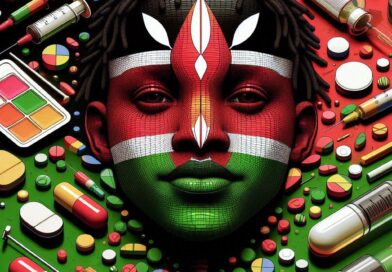Artificial Intelligence: A Game Changer in Healthcare
The transformative power of Artificial Intelligence (AI) in healthcare is undeniable. Primarily, AI, a facet of computer science that replicates intelligent behaviour, comes in two forms. The first, artificial general intelligence, emulates the human mind. The second, artificial narrow intelligence, excels at a single task. Most AI applications in healthcare belong to the latter category.
AI can be utilised in numerous ways within healthcare. Expert systems, for example, can solve specific problems with a high level of competence. Machine learning, an AI subfield, automates data analysis by detecting patterns. Natural language processing (NLP) bridges the divide between human and computer languages, enabling AI to comprehend text. Automated planning and scheduling organise activities to achieve a goal, while image and signal processing handle data from images and signals.
AI’s Promise in Resource-Poor Settings
AI has already proven beneficial in resource-poor settings. For instance, expert systems have been used to forecast cholera outbreaks in South Africa and birth asphyxia in Brazil. Machine learning has predicted dengue fever transmission in Manila, while NLP has been used for disease surveillance and outbreak predictions. AI planning has enhanced primary healthcare services, and signal processing has predicted birth asphyxia using a mobile phone in Nigeria.
However, implementing AI in resource-poor settings is not without challenges. These include the need for high-quality datasets, robust electronic health record systems, and substantial IT infrastructure. There are also ethical considerations around privacy, confidentiality, data security, informed consent, and data ownership. Cultural biases can also be reflected in data and algorithms, potentially exacerbating inequities.
AI’s Challenges and Insights
Despite these challenges, AI holds enormous potential for improving public health outcomes in low-income countries. The widespread use of smartphones, combined with growing investments in supporting technologies like mobile health, electronic medical records, and cloud computing, provide ample opportunities for AI applications. However, transitioning from pilot to scale will require addressing several issues, including legal and ethical questions, understanding local contexts, and developing a robust research agenda.
In conclusion, AI has the potential to significantly improve healthcare in resource-poor settings. However, it’s crucial that we navigate the challenges and ethical considerations carefully to ensure that this promising technology can truly benefit those who need it most.




